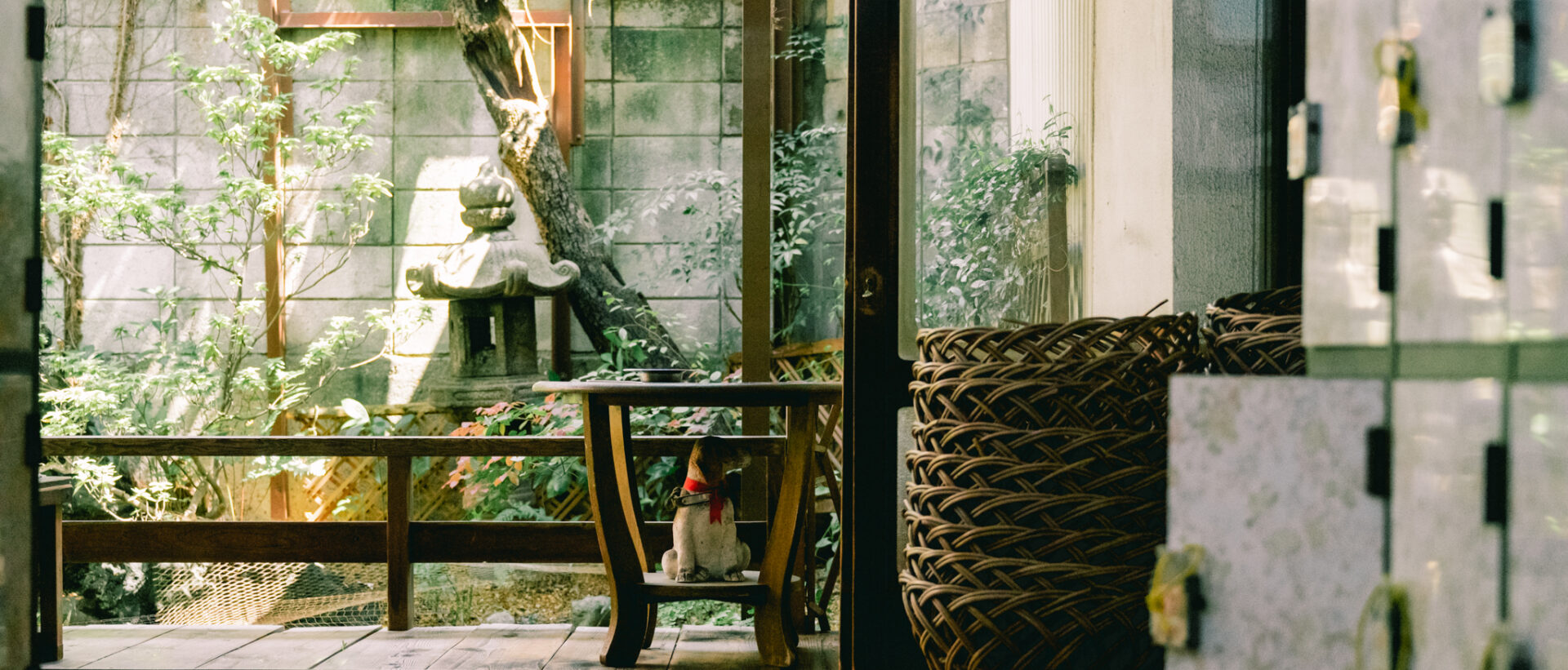Sento & Neighborhood is a not-for-profit organization founded in Tokyo in 2020. We pursue conservation, promotion, and research activities aimed at protecting Japan’s endangered public baths and bringing new life to communal bathing culture.
Public baths (sento) are essential nodes of local communities, nurturing warm human connections and setting the daily rhythms of neighborhoods. Communal bathing in urban Japan dates back centuries, and sento remained ubiquitous in Tokyo and other cities through most of the 20th century. Many traditional sento are architectural masterpieces similar in design to temples or shrines.

However, these spaces are now disappearing from Japan’s neighborhoods at an accelerating pace. In Tokyo alone, the number of public baths has fallen from more than 2,500 in the late 1960s to fewer than 430 in 2024. This decline is driven by a wide range of factors, including the increasing age of proprietors, changing lifestyles, maintenance costs, and the pressure of redevelopment.

Sento & Neighborhood seeks to highlight the social and cultural importance of these endangered common spaces and ensure their preservation into the future. We work to cultivate the potential of sento within their surrounding neighborhoods while respecting their historic character and existing community functions. Our work has been featured in the Japan Times, NHK World, and many Japanese language media outlets.
What we do
Restoration & conservation
We deploy our expertise in architecture and heritage conservation to work with owners and others actors to undertake historically sensitive repair and restoration of sento structures. In addition, we consult with sento owners about challenges facing their businesses, and seek to develop new sustainable models to preserve public baths for future generations.

In 2024, our Inari-yu Restoration Project, conducted in partnership with World Monuments Fund, received the Award of Excellence in the UNESCO Asia-Pacific Cultural Heritage Conservation Awards. This project entailed critical repairs to the 1930 bathhouse structure, and the complete restoration of an adjacent century-old nagaya tenement structure, which was converted into a new community space that enhances the function of the public bath.
Research & documentation
With backgrounds in architecture, ethnography, and sociology, we research the local history of baths and their neighborhoods, and conduct documentation of closed bathhouses prior to destruction. This work can be found on our Sento Archive page.
From 2023-2026, we are conducting a joint project with Kita Ward, Tokyo, to document and promote the ward’s remaining 20+ bathhouses and local businesses in their vicinity. Now in its second year, this project involves owner interviews, community workshops, and local fieldwork at each bathhouse, which is edited into newspaper format. An annual exhibition is held in a local space in each neighborhood targeted for research, showcasing the fruits of photographic, film, and interview documentation and bringing together old and new residents through local history.
Neighborhood engagement
We believe sento are commons embedded in the fabric of local neighborhoods and cultivated by their neighbors. We out this philosophy into practice at Inari-yu Nagaya (Instagram), which Sento & Neighborhood completed in summer 2022. Since its completion, this flexible space is used by a wide range of community members as a place to relax after bathing, while a growing number of neighborhood residents borrow the space to host cafes, markets, after-bath massage, yoga and art classes, workshops, live music, and other events.

Public awareness
Preserving sento into the future will require a new generation of sento operators and customers. Our members frequently lecture at universities and other venues about the challenges facing public baths, as well as lead tours and workshops to build public awareness and interest in sento.
Some of our members are involved in our sister organization Sento Dashi, which repurposed components and materials from many of the sento that had closed down over the past decade to create a traditional festival float. Multiple times each year, this float participates in local festivals including the Kanda Festival (below) and visits the sites of vanished bathhouses to recognize their contribution to neighborhood life.

Photo: Jun Tainaka
We are also interested in promoting understanding of the cultural and social value of sento overseas. Please contact if you are interested in collaborating.
Support Sento & Neighborhood
Sento & Neighborhood is a young and growing organization, and we welcome support from everyone who shares our interest in preserving Japan’s public baths and neighborhood culture. Please contact us at sento.to.machi (at) gmail.com if you would like to make a financial contribution or partner with us in future endeavors. Thank you for your support!


